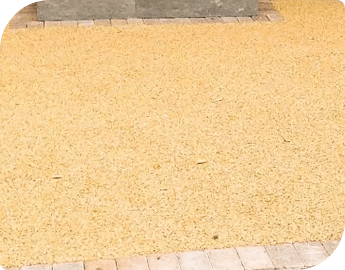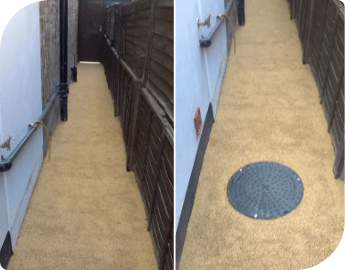Resin bound and resin bonded surfacing services
- Even, stylish and long-lasting surface
- Choose from a variety of colours
- Durable, porous surface appropriate for driveways and patios
- Experienced and insured technicians


Resin bound surfaces are a great choice for driveways and high traffic areas. The best about them is that they are extremely low-maintenance and porous. They allow water to pass through. Here is how a resin bound gravel driveway is laid:


Although they sound like the same type of surface, there is a significant difference between resin bonded and resin bound surfaces. While resin bound gravel is porous, resin bonded doesn’t let any liquids pass through. The process of laying is also quite different:
The resin bonded gravel is mostly appropriate for pedestrian areas and for commercial environments. This is the case due to its rough surface that gives shoes a very good grip. Unlike resin-bound gravel, however, It is not as appropriate for driveways and patios. Avoid it as a patio surface if you have children, too, as falling on it can be painful. As time passes, loose bits of gravel may start to appear.
Can't find the answer you're looking for?
Visit our Help Center.
Skip the line, request and
book a service online